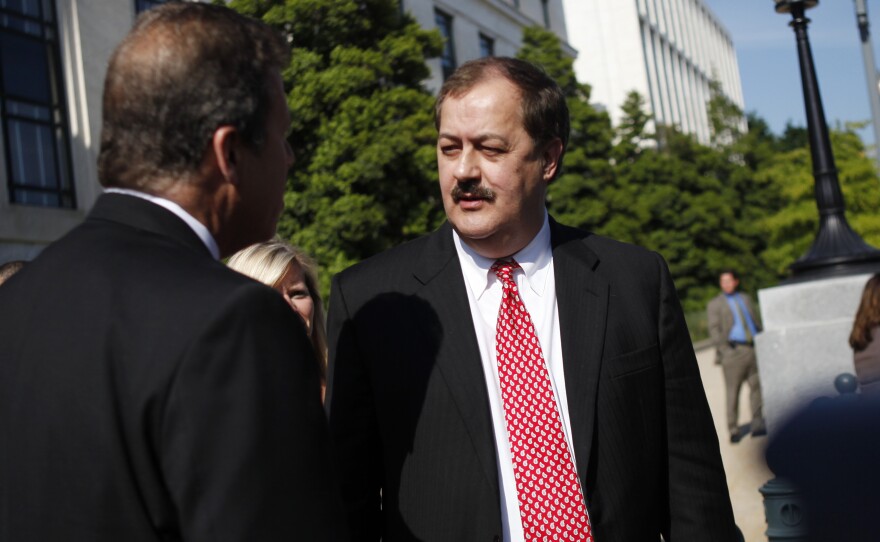Former CEO of Massey Energy Don Blankenship goes on trial today in West Virginia over federal mine safety charges. Prosecutors will argue that Blankenship is responsible for the 2010 explosion at the Massey-owned Upper Big Branch Mine that killed 29 workers in the worst U.S. mining disaster in 40 years.
West Virginia Public Broadcasting's Ashton Marra reports that Blankenship is "one of the highest level managers ever to face charges relating to mine safety violations." He is accused of conspiring to violate federal mine safety standards and lying to investors about the company's safety record after the blast at the mine in Montcoal, W.Va.
Marra adds that:
"Federal and state investigations blamed the blast on poor ventilation, high levels of explosive coal dust and Massey's history of safety violations. Prosecutors say Blankenship was a micromanager who threatened mine operators with their jobs if production levels dropped."
Since the 2010 explosion, four former Massey employees who reported to Blankenship have been sentenced on charges related to safety violations at the mine, or for conspiring to cover up violations: Thomas Harrah for falsifying a foreman's license and lying to federal authorities; former security chief Hughie Stover for lying to investigators and attempting to destroy evidence; superintendent Gary May for disabling a gas monitor and falsifying records, and former executive David Hughart for conspiring to warn miners of surprise safety inspections.
Prosecutors are expected to say that Blankenship closely managed almost every decision affecting safety at Massey mines. The defense is expected to point the blame at mine regulators.
The Associated Press reports:
"Slapping a coal executive with the kind of charges Blankenship faces is rare. " 'I'm not sure anyone can tell you that there's been a specific case where anyone had gone to the scope or the scale of what Blankenship's accused of,' said Paul Rakes, a West Virginia University Institute of Technology history professor who researches coal."
Blankenship faces a maximum of 31 years in prison if convicted.
Copyright 2015 NPR. To see more, visit http://www.npr.org/.






